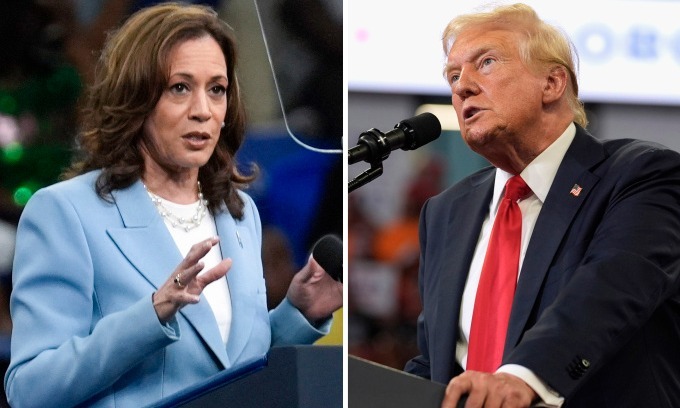Trump or Harris? Asia sees little difference between their likely economic policies
A second term for Trump could result in massive tariff hikes and another trade war.
He has proposed tariffs of 60% on imports from China and a blanket 10-20% for other countries, which would raise the costs of goods coming from the U.S.’s key trading partners such as Japan, South Korea and Vietnam.
His push for a weaker US dollar might also negatively impact Southeast Asian exports.
Harris has voiced opposition to Trump’s proposed tariffs but has not outlined her own trade policy in depth.
Analysts believe she may pursue a path similar to President Joe Biden’s, targeted sanctions at a limited but expanding set of industries essential to U.S. economic security.
“Economically, while both candidates lean towards protectionism, Harris’s approach is expected to be less disruptive, offering a more predictable trade environment,” Seong-Hyon Lee, an associate at the Harvard University Asia Center, told the South China Morning Post.
Despite Trump’s stance on tariffs, the difference between the two candidates’ policies regarding U.S. market access, a crucial issue for many Asian economies, may be less significant than it appears.
Lee suggested that many protective measures are likely to be implemented even under a Harris administration.
According to analysts and former officials, key U.S. policies toward the Indo-Pacific region are already well established, making the election outcome less impactful on regional interests.
Chim Lee, a senior analyst specializing in China at the Economist Intelligence Unit, told Nikkei Asia: “The major differences between a Harris presidency versus a Trump one would be the speed and extent of protectionist measures.”
Regardless of their differences, neither candidate offers policies that could be considered ideal for the region, but Harris is viewed as somewhat better for Asia, according to Asian and American officials, diplomats, businesses, and think-tankers interviewed by The Straits Times.
Greg Poling of Washington’s Centre for Strategic and International Studies said Southeast Asia is unlikely to see much impact even under a Trump administration.
“They will get through without too much disruption, which is what happened the last time.”


Comments are closed.